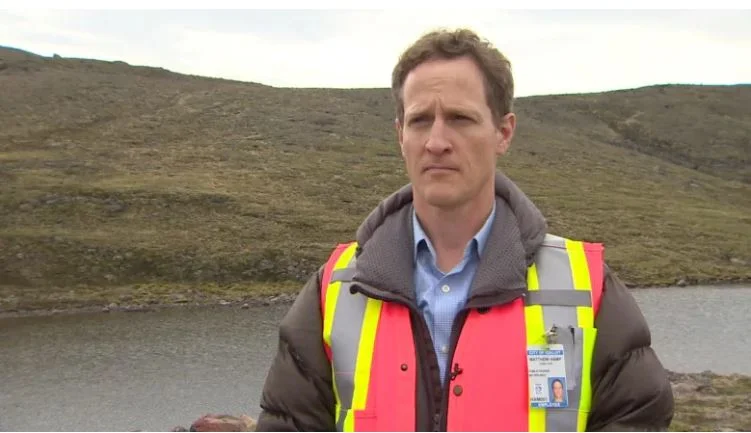A family of three lost their home to a fire on Sunday in Délı̨nę, N.W.T. Community leader Leeroy Andre said the former occupants are safe but that all of their belongings were lost to the flames. The disaster is causing leadership to re-evaluate its resources to deal with fires and how the community can be better equipped for the future. Andre said it's not clear why, but there wasn't enough water pressure coming from the community's firetruck.
Saskatoon residents still cleaning up after sewage water backed up in their homes
Penny Fentiman is one of several Saskatoon homeowners in the middle of a major cleanup after houses in the Montgomery Place neighbourhood were recently hit with a deluge of backed-up wastewater. Sewage water first seeped into Fentiman's home Friday morning and then again shortly before midnight. It's the second time wastewater has flooded her home on the 3400 block of 11th Street in the past five years. The City of Saskatoon said the latest incident was due to a pair of sewer blockages, which forced them to shut off water to homes in the area. The issues have since been resolved and the water turned back on — but Fentiman is concerned it's a Band-Aid solution and that it could be several years before the city implements a long-term solution.
Taps flow again in Long Plain First Nation after water ran dry
Long Plain First Nation had to call on help from its neighbours over the weekend after its water supply ran dry on Friday. Now as tanker trucks haul water from nearby Portage la Prairie to replenish the First Nation's reservoir, leaders in the First Nation are searching for a long-term solution. "I think people are quite concerned by it," Chief Dennis Meeches said about the persistently hot and dry conditions, which drained aquifers that feed the community's reservoir.
Wet’suwet’en First Nation’s long-term boil water advisory lifted
The Wet’suwet’en First Nation’s long-term boil water advisory finally came to an end this March. In a news release issued by the First Nation, Chief Maureen Luggi and the elected council of the Wet’suwet’en First Nation announced that the long-term Permanent Boil Water Advisory for the nation had been lifted. The advisory was lifted on March 18. The ban had been in place since March 13, 2013 according to Indigenous Services Canada website and has now been resolved with upgrades to treatment processes and a feasibility study to determine long-term solution. The ban was put in place after arsenic was found in the water and the people were asked not to consume this water directly.
After three months without water, the taps are running again in Big Grassy River First Nation
Water is flowing through the taps once again in Big Grassy River First Nation after three months without consistent, potable water. However, the current water is untreated and coming directly from Lake of the Woods as the community waits for repairs to the water filtration system. The result is that community members have had to go to the beach to collect water for basic sanitation needs, and buildings have been shuttered and the school remains closed to students until a running, drinkable water service is restored.







